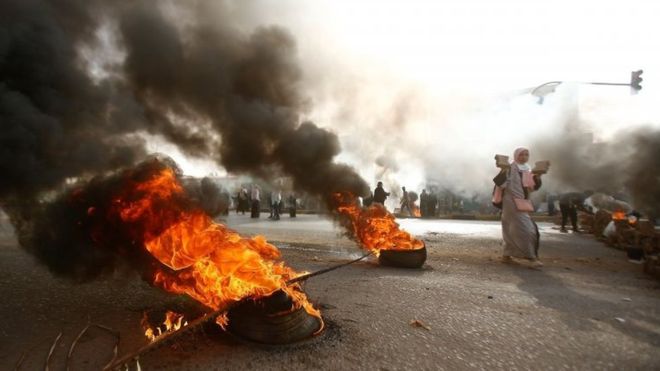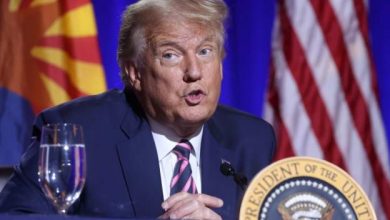International
Sudan crisis: Security forces move against protesters

Sudanese security forces have attacked a pro-democracy protest outside the military headquarters in the capital, Khartoum.
Live ammunition has been used and eyewitnesses say there are fatalities.
Sudan has been governed by a Transitional Military Council (TMC) since President Omar al-Bashir was overthrown in a coup in April.
Protesters have been demanding that a civilian government should take over the running of the country.
What’s the latest?
The security services moved on the main protest site early on Monday.
Khartoum residents reported hearing heavy gunfire and seeing smoke rising from the area around the army headquarters.
At least five people are reported to have been killed and a number injured.
“Now an attempt is taking place to disperse the sit-in,” said a short statement from the Sudanese Professionals Association, the group which is spearheading nationwide protests.
The association also called for a campaign of “sweeping civil disobedience to topple the treacherous and killer military council and finalise our revolution”.
Protesters have been burning tyres and erecting barricades to try to fend off the security forces.
Journalist Benjamin Strick, who specialises in verifying footage on Twitter, has shared dramatic videos from Khartoum, where repeated gunfire could be heard.
Sudan’s military has so far made no public comments.
The US embassy in Sudan said attacks by Sudanese security forces against protesters were “wrong and must stop”.
What’s the background?
The demonstrators have been occupying the square in front of the military headquarters since 6 April, five days before Mr Bashir was overthrown.
Last month, organisers and the ruling generals announced they had agreed on the structure of a new administration and a three-year transition period to civilian rule.
But they still need to decide on the make-up of what has been called the sovereign council, which will be the highest decision-making body in the transition period.
They cannot agree on whether civilians or the military should have the majority of positions.



